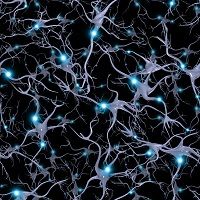Article
Stem Cells Could Improve Stroke Recovery, Study Finds
Author(s):
The use of preconditioned mesenchymal stem cells (MSCs) may offer a new, safer alternative to other cellular therapies used for tissue regeneration, according to recent study.

The use of preconditioned mesenchymal stem cells (MSCs) may offer a new, safer alternative to other cellular therapies used for tissue regeneration, according to recent study.
The study, conducted by Ji Yong Lee, of the Institute for BioMedical Convergences at the Catholic Kwandong University-International St. Mary’s Hospital in the Republic of Korea, and colleagues is described in an article published in the journal Nature on September 9, 2016.
Previous research has demonstrated the beneficial therapeutic possibilities of cell transplantation for patients with a variety of central nervous system conditions, including those with ischemic stroke. The authors say, “We and other groups have shown that in animal models MSCs can improve functional deficits induced by ischemic stroke,” adding, “therapeutic benefits are evident within days of cellular injection.”
“Recent studies on MSCs have shown that the secretome, exosome, and microvesicle (MV) fractions of conditioned media mimic the beneficial effects of MSCs,” say the authors. In the recent study they say they investigated “whether MSC-MVs and MVs isolated from MSCs treated with normal (NBE-MSC-MVs) and stroke (SBE-MSC-MVs) rat brain extract would improve functional recovery and tissue regeneration” in a rat model of stroke.
The results of the study showed that in both normal and stroke-injured brains had improved neurological outcomes as a result of treatment. The researchers say, “the results of this study clearly support the hypothesis that MSC transplantation or injection promotes endogenous neurogenesis and improves behavioral deficits after ischemic stroke.”
The researchers conclude by noting that “a number of clinical trials of stem cell transplantation for neurodegenerative diseases such as stroke are underway, and an impressive body of evidence documenting the clinical benefits of such approaches is accumulating, newly introduced approaches utilizing MVs/exosomes derived from MSCs represent a novel and safe alternative.”
Further Coverage:
Stem Cell Treatment Seen for MS
New Technology Looks to Improve Treatment of Neurodegenerative Diseases





